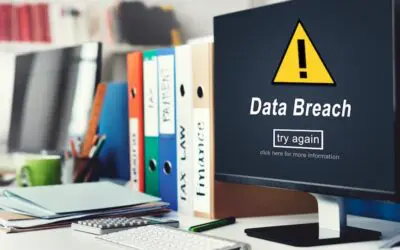Do I need to backup OneDrive? What about protecting my OneDrive data against ransomware? We answer all your questions about OneDrive here.
Before we talk about if you should back up your OneDrive, let’s just quickly go over what this Microsoft application is for those of you who don’t know what it is or are still on the fence about purchasing OneDrive.
What is OneDrive?
Microsoft’s OneDrive is a cloud storage service that Microsoft offers in most of their Microsoft 365 licenses that lets you store all your files securely in one place.
Why should I use OneDrive?
If you want your data securely stored AND available to you from any device then OneDrive is for you. With OneDrive, you can collaborate on your documents, as can others from your team – in real-time. If you need those files locally, you can sync them to your local drive. You also get to control who has access to your files, and you can share those files with people outside of your organization.
Should I backup my OneDrive?
Now back to the main question, should you backup your OneDrive? Well, it is always a good idea to back up your data. You never know when you’re going to accidentally permanently delete an important file, which you can do even when it’s stored in the cloud. You may also want to get back a certain version of a file, and although OneDrive does versioning, it only goes back 25 versions.
Also, Microsoft does not guarantee the safety or even the availability of your data. If you read their Services Agreement, they say they strive to keep services up and running, but that they’re not liable for any disruption or loss. It also says in the event of an outage, you may not be able to retrieve your content or data. They actually recommend a regular backup strategy.
Is my data at great risk?
No, that doesn’t mean your data is at great risk. In fact, the chances of losing all your data are slim to none. Even their longest outages are only a matter of hours, and rare at that. So what does Microsoft do to ensure the availability and safety of everybody’s data?
Depending on where you are in the world, they replicate your data to either 2, 3, or 4 data centers in geographically separate regions. The most common is 4, so in the event of natural disaster, civil unrest, or terrorism, the data is in different places far apart.
Can I lose my files due to malware?
What about ransomware? Can I lose my files to malware? The easy answer is that Microsoft blocks and detects almost all ransomware, but in the rare event they don’t, they make it easy to recover through versioning – a history of changes made throughout the life of your file. You can also submit a ticket to Microsoft and have them restore data, but it can take up to a week.
How else could I lose data?
If you have more content stored in your OneDrive account than is provided to you under the terms of your free or paid subscription service for OneDrive, Exchange, or Sharepoint, and you do not respond to notice from Microsoft to fix your account by removing excess content or moving to a new subscription plan with more storage, they reserve the right to close your account and delete or disable access to Your Content on OneDrive. So always keep an eye on your storage use and don’t delete those emails from Microsoft.
As always, the most important thing is to find you a solution that is Simple. Convenient. Secure.
If you still have questions about OneDrive or are interested in purchasing your Microsoft 365 Licensing from us, you can contact us at learnmore@greatservice.com or fill out our contact us form.



